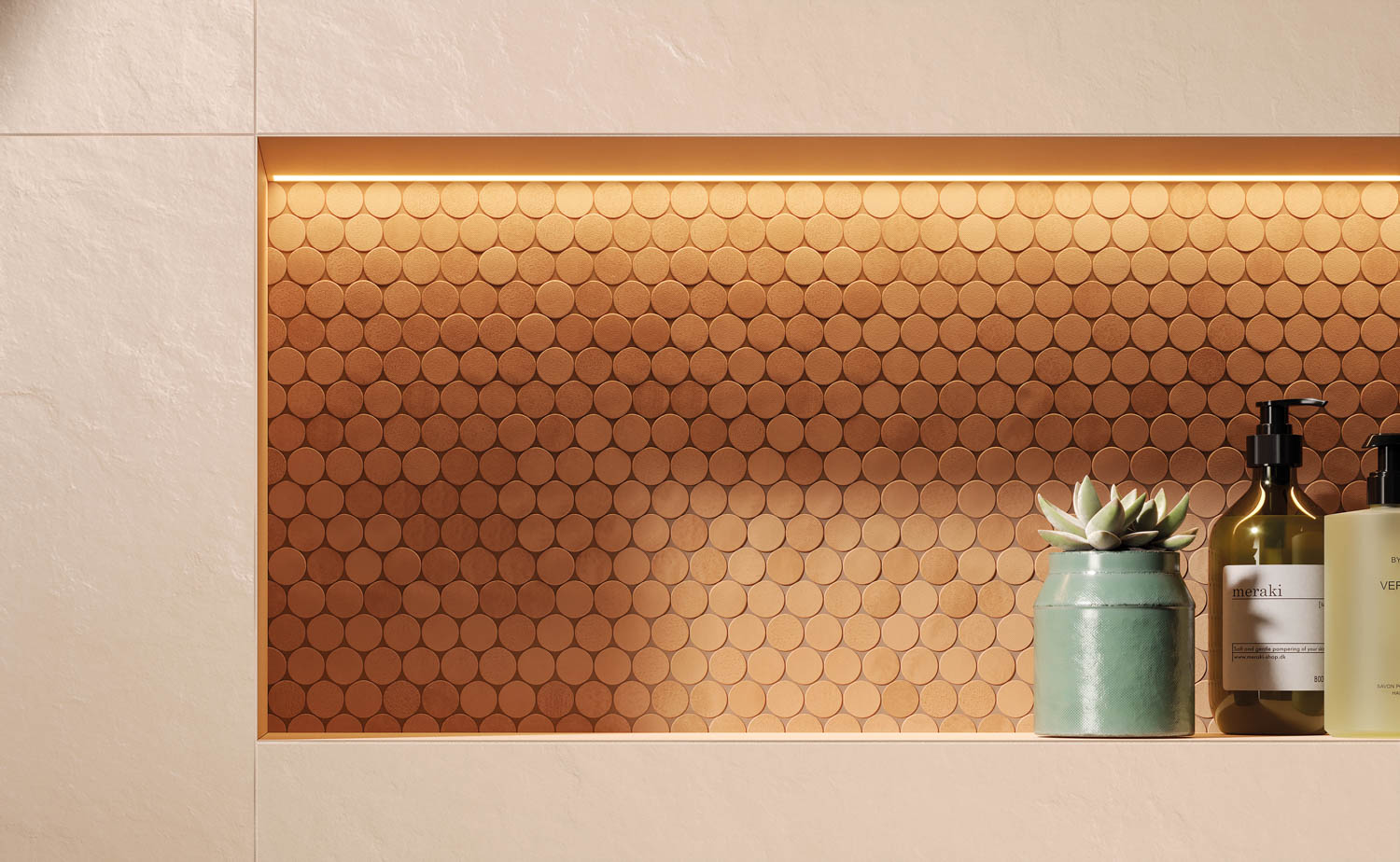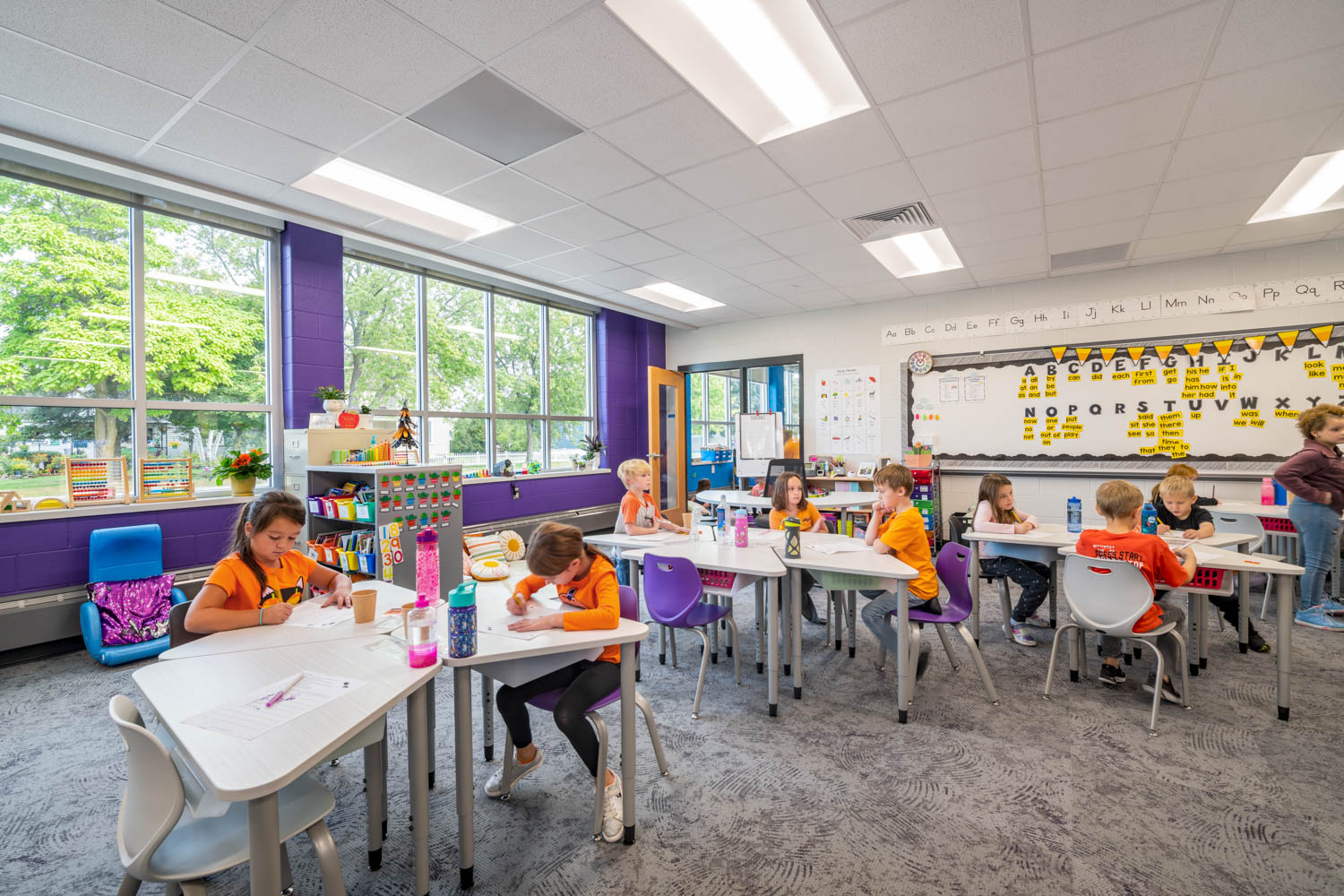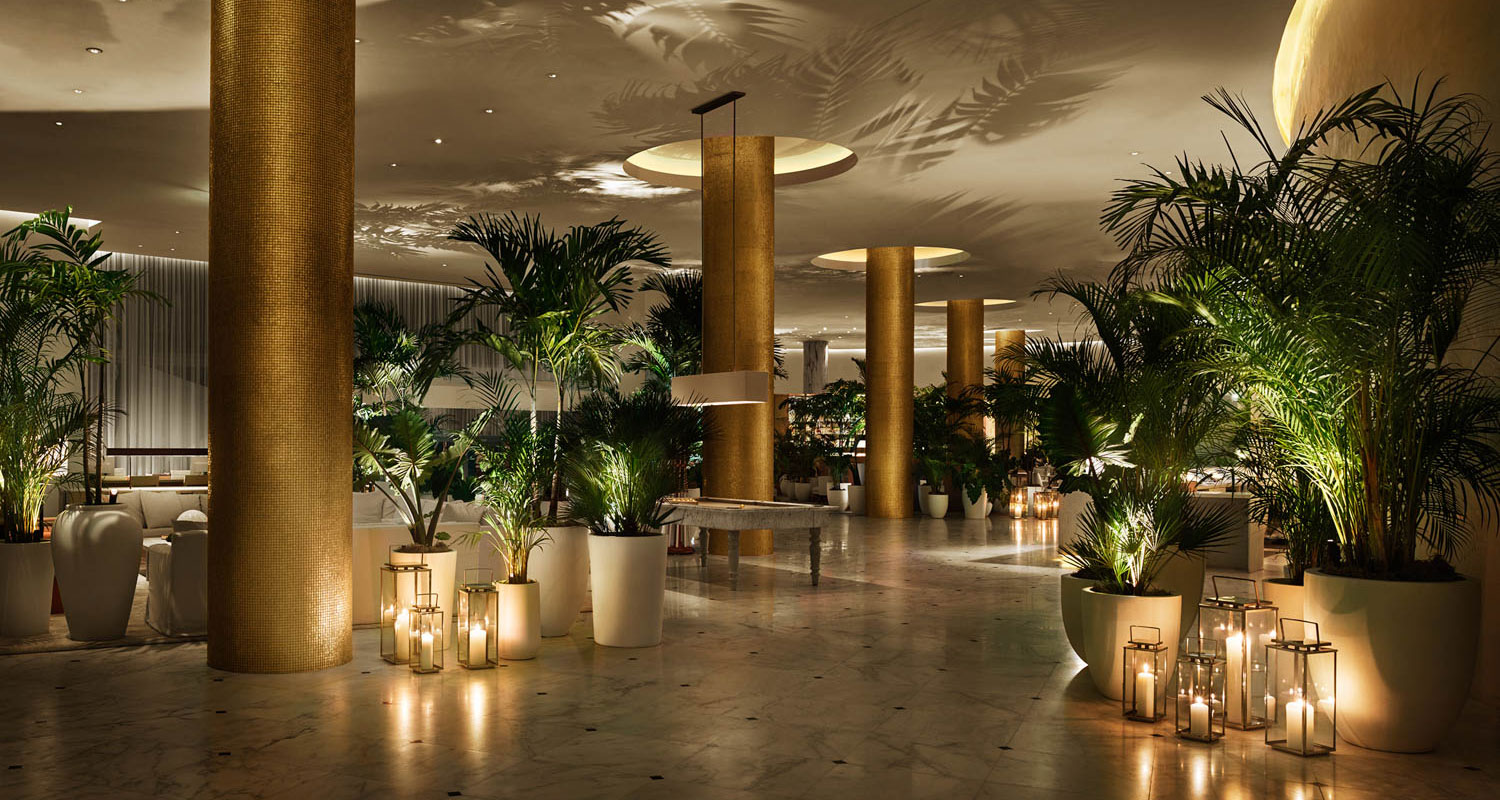10 Questions with… Dina Belon-Sayre
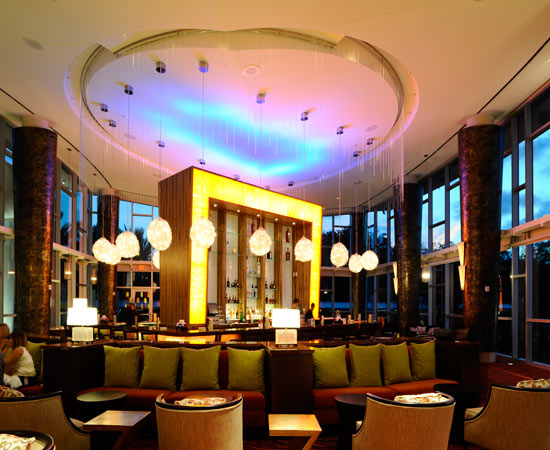
Rocks restaurant at the Peabody Orlando. Photo courtesy of Peabody Orlando.
Working tirelessly to reach and maintain exceptional levels of sustainability in hotel operations at the luxurious and eco-forward
Peabody Orlando
hotel in Florida, Dina Belon-Sayre is a LEED-Accredited interior designer who specializes in brand quality and resort rehabilitation. Her work at the Peabody speaks directly to her personal mission statement: “Enhance the triple bottom line: profit, people, and the planet.”

Interior Design: For those on the outskirts of the hospitality industry, what are the challenges of integrating sustainability into a hotel’s operations?
Dina Belon-Sayre: The biggest challenge is cultural change. Hotel operation is centered on guest experience, and sustainability actually ties into that perfectly. So many people think that green hotel initiatives are about taking away from guests’ experiences, but when done properly, it really can improve guest experience. It’s more about changing associates’ mind. Everyone thinks it’s going to be a pain, and cost a bunch of money, but those are misconceptions.
ID: How did this position—one of the rare, sustainability-focused careers within a major hotel—come to fruition?
DBS: My boss—the hotel’s Director of Engineering, Mike Judd—came from a
Hilton
hotel out west. He’s a LEED accredited professional with a personal ethos of sustainability. When he joined the organization, he wanted to create a position focusing on solely on sustainability and he brought me on. In our first year together, we wound up saving five percent of our energy consumption—more than $175,000 dollars, which I’ll assure you more than pays for my salary. That’s just one of many ways that improves our operation.
ID: Are your efforts embraced as a selling point?
DBS: Our work has been able to assist the sales team in bringing in “sustainable conferences”—and it’s rare that the engineering department of a hotel can drive revenue to a hotel. I’ve actually spoken to executives from other hotels and told them in all honesty, “If you don’t have a sustainability person at your large scale hotel, it’s detrimental to your business operation.” They go, “Really?” It’s a time constraint thing more than a money issue… It’s difficult to dump the task of sustainability on top of someone already with a full time job.
ID: How has your staff at the Peabody taken to your greener ways?
DBS: It’s really been an amazing reception. The Peabody is a huge operation—2.7 million square feet. It’s basically a small city, accommodating 3,500 guests and employing 1,200 employees. It’s that kind of scale. It’s been interesting to see how open and excited the associates have been.

ID: What are some of the initial successes in your efforts?
DBS: When I came on, our waste diversion was about 18 percent, and we made it a goal to get waste diversion to 25 percent. We did that through education on how recycling should happen. We had some fun with the staff—some rah-rah stuff with games in the cafeteria on recycling day with prizes. Then we wrote our policies and procedures, and implemented training. Coming in and mandating change never works as well as encouraging people to buy into your idea.
With up to 1,500 employees, it was not a quick process, but we are now at 35 percent waste diversion. Our objective is to eventually do 75 percent diversion rate. Believe it or not, it’s a realistic goal. Mind you, we have very wide-reaching recycling initiatives: We recycle wood palates, metal scraps, batteries, tires, key cards, computer equipment, and so on. All that takes some research; one waste management company doesn’t just come and pick all that up.
ID: What do you say to the notion that sustainable practices detract from a luxury hotel experience?
DBS: As a four-star, four-diamond hotel, you have to have impeccable guest service, and the Peabody is absolutely known for its guest services. Meanwhile, sustainability is going to make our building healthier, make a better indoor guest experience, create better air quality. We offer a fabulous shower, and it doesn’t have to pump out six gallons per minute.
ID: What are some of the great opportunities within the hospitality world to make waves on the subject of sustainability?
DBS: The most exciting thing I’ve seen this year is the completion of the
APEX Meeting Standards
[Accepted Practices Exchange of the Convention Industry Council]. It’s a really strong questionnaire that allows sustainability efforts to come from every direction in the supply chain. Take, for example, McDonalds—which has a large conference in Orlando every other year. As a large corporation, they have sustainability reporting. 95 percent of all Fortune 100 companies do a sustainaibiltiy report. In their sustainability reporting, they have to report how “green” their event was. So they’ll go to their meeting planner and say, “We want a green event.” The meeting planner comes to us—and APEX-accredited hotel—and says, “OK, we need a green event.” These standards give companies such as those a benchmark, and offer a transparent way of reporting information. We can then market to clients, saying, “We can provide you an APEX, sustainable event.”
ID: Orlando in general is among the greenest destinations in the world. How are you involved with that?
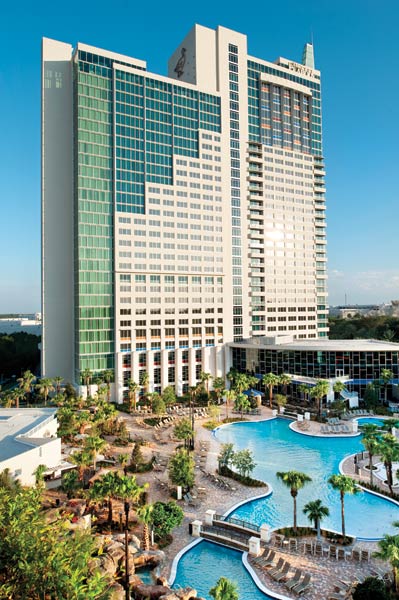
DBS: I am the Executive Director of
Green Destination Orlando
, which is a community-based effort to make Orlando the greenest destination in the U.S. We’ve been in existence for three years now, and we’re an alliance of hoteliers, theme parks, restaurant, transportation companies, and so on, working together to create a total sustainable experience—from the moment a guest lands. It’s the car they drive, the hotel where they stay, the theme park they visit. . .a total, holistic, sustainable experience.
We’re now pivoting to talk to the visitor about what we’re doing. It that’s a meeting planner trying to plan an event, we have a big, long list of green venues, tips to visitors, restaurants that use farm-to-fork food concepts, shopping facilities that have done a great job in keeping green, and so on. We’re excited about
Drive Electric Orlando
, as well—a program that encourages electric car use. We’ve gotten Enterprise and Hertz to offer electric cars in their rental fleet, and we’re working to develop citywide infrastructure with over 350 electric car charging station.
ID: What are some of your volunteer involvements?
DBS: There’s a lot to mention. I have been involved in
NEWH [Network of Executive Women in the Hospitality Industry]
, and I developed a webinar series program called Green Voice. I also contributed to the Green Hospitality Conference, which has held at the Peabody Orlando. I’m also involved in the
Green Meeting Industry Council
, the
U.S. Green Building Council
, and the
American Green Lodging and Hotel Association
.
ID: What drives your passion?
DBS: It’s really a personal ethos. I was raised in Oregon, and it’s the way I always was. For a long time, being in the hotel development industry was a challenge to my personal ethos—I’d think, Do we really want to lop off the top of a mountain to put in a resort? I’ve come to see sustainability as a path rather than a destination. I’ve been focused on sustainability for last ten years, and it has been wonderful. Ten years ago, I thought I knew a lot, but what I know now is significantly more.
